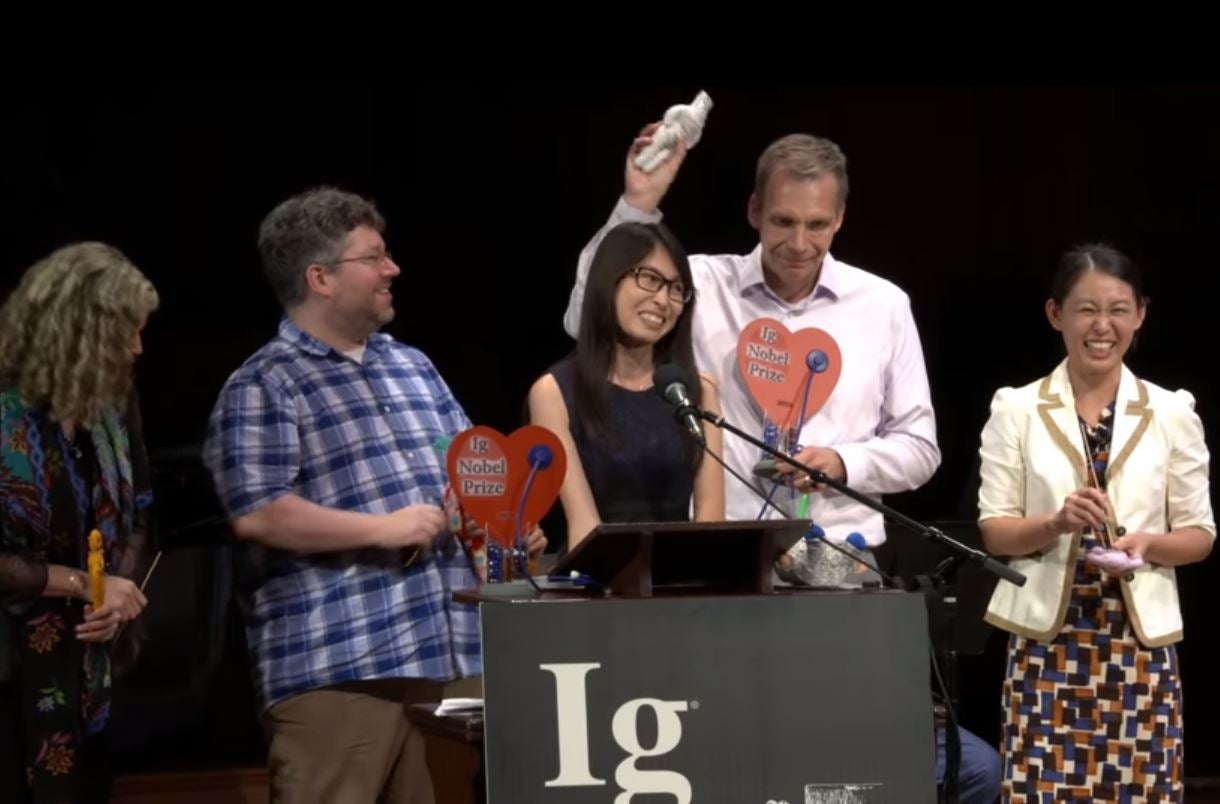For the second time in two years, we’re celebrating Ig Nobel winners in the Department of Psychology. Congratulations to Professor Douglas Brown from the department’s Industrial/Organizational area and his co-authors on winning a 2018 Ig Nobel Prize for their study, Righting a wrong: Retaliation on a voodoo doll symbolizing an abusive supervisor restores justice.
Ig Nobel prizes "honor achievements that make people LAUGH, and then THINK. The prizes are intended to celebrate the unusual, honor the imaginative — and spur people's interest in science, medicine, and technology," according to the Ig Nobel website. Awarded at a high-profile but thoroughly tongue-in-cheek event at Harvard University, the annual prize is sponsored by the science humour magazine Annals of Improbable Research for comical but practical scientific discovery.
“Winning this prize is the highlight of my career,” said Prof. Brown in The Guardian. “We get to show people that science doesn’t necessarily need to be dry and boring. Sometimes you can do sound science and have a laugh along the way.”

The researchers found that abusing a virtual voodoo doll instead of your boss will make you feel better without getting you fired or thrown in jail.
“We all know yelling at our boss is bad for your career. So what’s the function of retaliation? Why do people keep doing it?” said co-author Lindie Liang, as reported in The Star. She is a former Waterloo PhD student supervised by Prof. Brown, and is now an assistant professor of business at Wilfrid Laurier University, where she specializes in workplace aggression.
For their Ig Nobel-winning study, participants were shown an online voodoo doll with their supervisor’s initials and had the option to use pins, pliers or fire on the virtual doll. The researchers found that people felt a sense of justice restored after abusing the doll.
The paper by Brown, Liang, Huiwen Lian, Samuel Hanig, Lance Ferris, and Lisa Keeping was recently published in The Leadership Quarterly.
Read about Psychology's 2016 Ig Nobel win for the paper, On the Reception and Detection of Pseudo-Profound Bullshit.